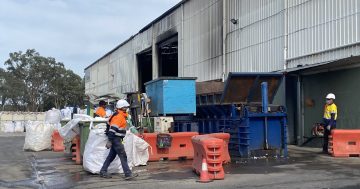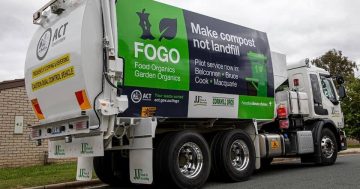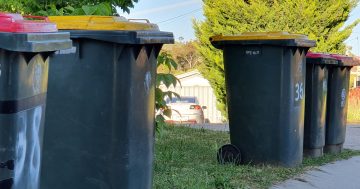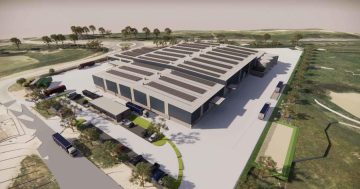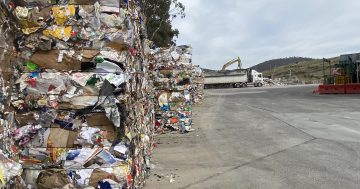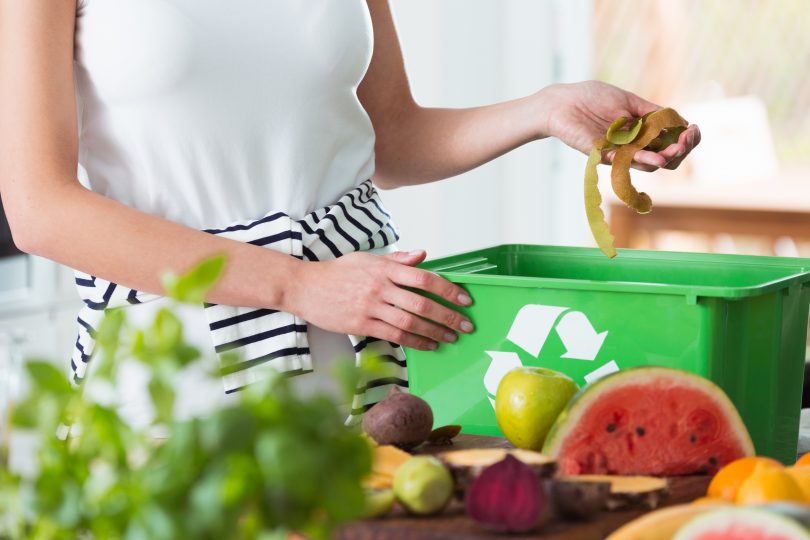
What a waste: Why has the ACT still not come up with an effective food waste management system?
The ACT has a reputation for being a leader when it comes to climate change and reducing our environmental footprint. Despite significant cynicism when the 100% renewable electricity target was announced, we are now on track to realise the target. Strong action to protect the environment is supported by our community, and citizens have worked together with the Government to care for the environment in which we live.
So its come as some surprise to read the latest ACT Government waste management plan, the Roadmap to Improved Resource Recovery, which is proposing recommendations and initiatives to lift resource recovery from 70% to 90% within the ACT but fails to move quickly on our biggest issue for landfill – food waste. This is particularly surprising that it is being produced at a time when other councils have already been able to make the shift from this being a waste product to a valuable material to be harvested and used.
It must be acknowledged that when dealing with the issue of waste, here in the ACT we have struggled to find the balance between ambition and reality. In the 1990s we were working towards a No Waste by 2010 Strategy, but this was quietly scaled back to a ‘no waste to landfill’ target as we approached the deadline, and then replaced by the ACT Waste Management Strategy 2011–2025. Despite not reaching the target, this focus on waste reduction did see some significant wins. ACT residents are some of the biggest recyclers in the land. In addition, around 70% of our waste is being diverted from landfill, with significant effort put into recovering, reusing and recycling many of the items that we used to send to landfill.
The Government’s latest piece of work in this area aims to provide a pathway for us to get to resource recovery rates of up to 90%. The plan recognises that food waste is one of our biggest contributors to landfill (around 37% of landfill waste), and notes that it will need to be dealt with due to the emissions it creates if we are to become carbon neutral. Despite this, this plan proposes little immediate action on this issue. Instead, the government is suggesting that we will not be able to move to large-scale collection and management of food waste for up to five years. This is curious for a city that committed to becoming carbon neutral, is known for its innovation, has shown an appetite for environmental leadership and has its community strongly supporting governments who are committed to environmental protection. It is doubly curious that the Government who is enthusiastically embracing urban infill and densification, does not seem to be planning for the environmental impact of our changing city. For instance, there seems little attention has been given to environmentally minded apartment dwellers who are keen to deal with food waste but have few opportunities to compost or deal with their food scrapes – it is really quite difficult to have a compost bin or chickens on the balcony!
When we know that councils across the country, including those just across the border, have been able to introduce kerbside organic collection services that include food waste, it is very hard to understand that it will take us at least five years to introduce similar programs. Certainly, the materials released to date give no real rationale behind why we couldn’t be investing in programs such as ‘city to soil’ programs that compost food waste into high-quality compost while larger-scale processing plants are built. There are exciting organic waste programs being rolled out in councils including Lake Macquarie who are currently transitioning to different kerbside waste collection systems with the support of the community. Trials that proceeded the full program have shown that most residents welcomed the opportunity to recycle food waste and were able to use the bins correctly. We are also seeing communities across the world rolling up their sleeves and taking the waste issue seriously – hard to see why we can’t move more quickly, particularly when we consider the significant investment already being made into opt-in organic kerbside waste collection services for waste that was already being diverted from landfill.
The good news is that the Government is asking for public feedback on the plan, and community members are invited to make submissions before 18 June on what they think about the current plan.
I think it’s time to get serious about the issue of food waste in our city and invest in ways to keep it out of landfill. What do you think?













